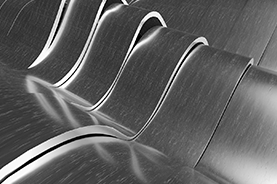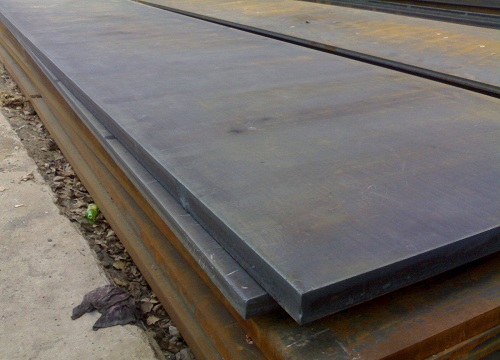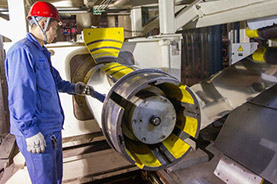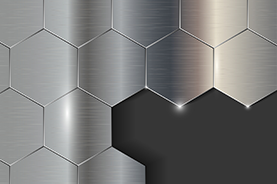Detailed classification of welded steel pipes according to use
Source:XHD Metals Time:19 March 2021
Welded steel pipes are classified by use:
Divided into general welded pipe, galvanized welded pipe, oxygen-blowing welded pipe, wire casing, metric welded pipe, roller pipe, deep well pump pipe, automotive pipe, transformer pipe, electric welded thin-walled pipe, electric welded special-shaped pipe and spiral welded pipe.
General welded pipe: General welded pipe is used to transport low-pressure fluid. Made of Q195A, Q215A, Q235A steel. It can also be made of other mild steel that is easy to weld. Steel pipes need to be subjected to water pressure, bending, flattening and other experiments, and there are certain requirements for surface quality. Usually the delivery length is 4-10m, and fixed-length (or double-length) delivery is often required. The specifications of welded pipes are expressed by the nominal diameter (mm or inches). The nominal diameter is different from the actual. Welded pipes are divided into two types: ordinary steel pipe and thickened steel pipe according to the specified wall thickness. The steel pipe is divided into two types with thread and without thread according to the pipe end form.
Galvanized steel pipe: In order to improve the corrosion resistance of the steel pipe, the general steel pipe (black pipe) is galvanized. Galvanized steel pipes are divided into two types: hot-dip galvanizing and electric steel zinc. The hot-dip galvanizing layer is thick and the cost of electro-galvanizing is low.
Oxygen-blowing welded pipe: Used as a steel-making oxygen-blowing pipe, generally small-diameter welded steel pipes, with eight specifications ranging from 3/8 inch to 2 inch. It is made of 08, 10, 15, 20 or Q195-Q235 steel belt. In order to prevent corrosion, some are aluminized.
Wire casing: It is also an ordinary carbon steel electric welded steel pipe, used in concrete and various structural power distribution projects. The commonly used nominal diameter is from 13-76mm. The wall of the wire sleeve is thin, and most of it is used after coating or galvanizing, and a cold bending test is required.
Metric welded pipe: The specification is in the form of seamless pipe, and the welded steel pipe expressed by outer diameter * wall thickness in millimeters, using ordinary carbon steel, high-quality carbon steel or general energy low-alloy steel for hot strip, cold strip welding, or after hot strip welding Then it is made by cold dialing method. Metric welded pipes are divided into ordinary energy and thin-walled pipes, and are commonly used as structural parts, such as transmission shafts or conveying fluids. Thin-walled pipes are used to produce furniture, lamps, etc., and the strength and bending test of the steel pipe must be ensured.
Roller tube: Electric welded steel pipe for the roller of belt conveyor, generally made of Q215, Q235A, B steel and 20 steel, with a diameter of 63.5-219.0mm. There are certain requirements for tube bending, end face perpendicular to the center line, and ellipticity. Generally, water pressure and flattening tests are carried out.
Transformer tube: It is used to manufacture transformer radiator tubes and other heat exchangers. It is made of ordinary carbon steel and requires flattening, flaring, bending, and hydraulic tests. Steel pipes are delivered in fixed-length or double-length, and there are certain requirements for the bending of the steel pipe.
Special-shaped pipes: square pipes, rectangular pipes, hat-shaped pipes, hollow rubber steel doors and windows welded by ordinary carbon structure steel and 16Mn steel strips, mainly used for agricultural machinery parts, steel windows and doors, etc.
Welded thin-walled pipe: mainly used to make furniture, toys, lamps, etc. In recent years, thin-walled pipes made of stainless steel belts are widely used, such as high-end furniture, decoration, and fences.
Spiral welded pipe: It is made by rolling low-carbon carbon structural steel or low-alloy structural steel strip according to a certain spiral angle (called forming angle) into a tube blank, and then welding the tube seam together. It can be made with a narrower Strip steel produces large diameter steel pipes. Spiral welded pipes are mainly used for oil and natural gas pipelines, and their specifications are expressed by outer diameter * wall thickness. Spiral welded pipes can be welded on one side or on both sides. Welded pipes should be guaranteed to meet the requirements for hydraulic test, tensile strength and cold bending performance of the weld.









